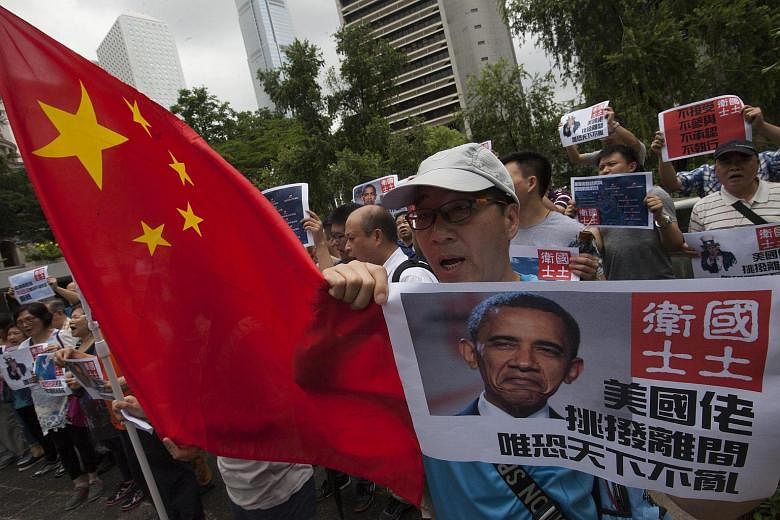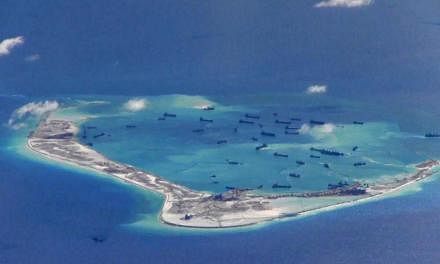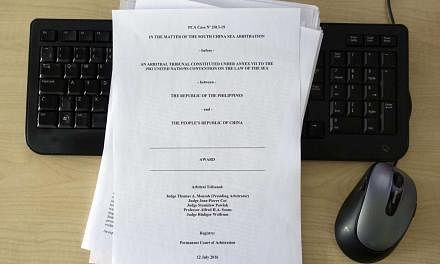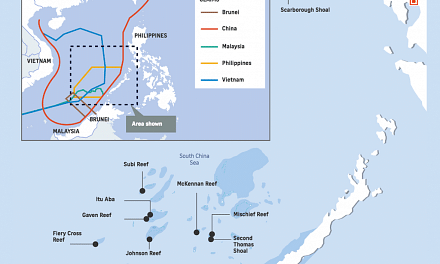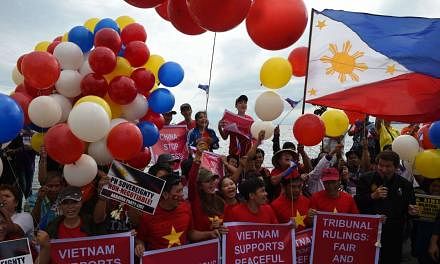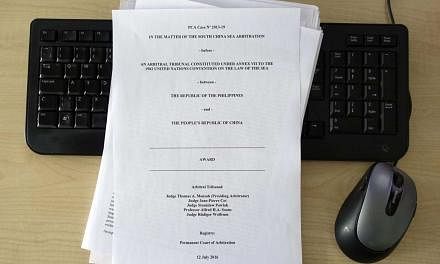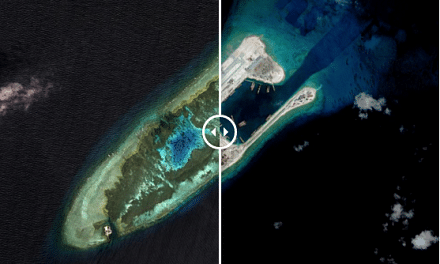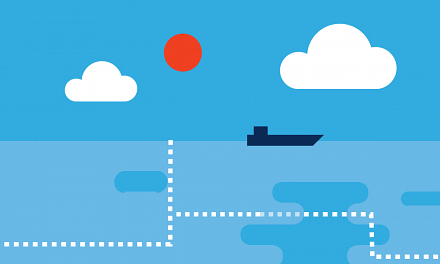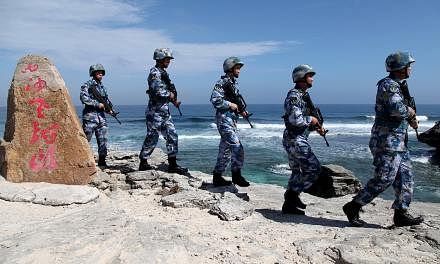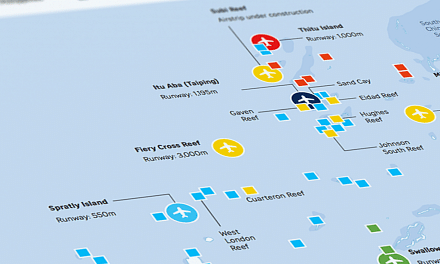One windfall from last week's landmark ruling that struck down Beijing's claims to nearly all of the South China Sea is that it provides a helpful template for resolving disputes among South-east Asia's own littoral states, analysts said.
They said that the ruling by a five-man arbitral tribunal in The Hague, while mainly involving disputes between the Philippines and China, narrows the scope of disputes involving maritime overlaps among the 10 Asean member states.
"The tribunal ruling is not just about the Philippines and China," said Mr David Han, research analyst at the S. Rajaratnam School of International Studies (RSIS), but "has legal and political implications" beyond the South China Sea.
The 479-page verdict handed down on July 12 ruled that China cannot lay claim to over two-thirds of the South China Sea based on historic rights or ancient maps.
Claims of maritime entitlements must instead be defined under the 1982 United Nations Convention on the Law of the Sea, it said.
Under that treaty, adopted by 165 countries including China and the Philippines, land features, not historic rights, determine maritime claims. The tribunal then concluded that there is no "island" in the Spratlys that would have economic rights of up to 200 nautical miles, but just "rocks" with, at most, a 12-nautical mile "territorial sea".

South-east Asia's complex geography of exclusive economic zones (EEZ), territorial seas and archipelagic waters has resulted in a multitude of overlapping claims.
Nine out of the region's 10 states are coastal states, and two - Indonesia and the Philippines - are among the world's largest archipelagic states. From 1969 to 2009, at least 37 arrangements have been made to resolve disputes over sea borders. But many are still unsettled.
Cambodia still has to resolve its boundaries with both Vietnam and Thailand in the Gulf of Thailand.
Indonesia has already concluded several continental shelf boundary agreements, but it has yet to firm up EEZ boundaries with Malaysia in the Northern Malacca Strait, Vietnam in the South China Sea, and Thailand in the Strait of Malacca and in the Andaman Sea.
Malaysia, meanwhile, has disputes to resolve with Indonesia in the Celebes Sea, and with the Philippines in the Celebes Sea, the Sulu Sea and South China Sea.
Analysts said the arbitral court's ruling has made it easier to set ground on settling these disputes, whether through bilateral or multilateral channels. Historic rights as a basis for economic rights at sea, for instance, are out.
"The Asean way encourages flexibility and constructive cooperation. How this would work out… after the Hague ruling remains to be seen," said RSIS' Mr Han.
But he added: "I believe that moving forward, Asean would seek to focus on peaceful cooperation in line with the principles laid down in the 2002 Declaration on the Conduct of Parties in the South China Sea."
Ms Elina Noor, director of foreign policy and security studies at the Institute of Strategic and International Studies in Malaysia, said: "The tribunal ruling clarifying the nature of the features in the Spratlys may make joint development initiatives more palatable, provided claimants do not make acceptance of sovereignty or sovereign rights a precondition".
A couple of countries in South- east Asia have already proceeded with economic arrangements, notwithstanding their competing claims. These include the Thai-Malaysian Joint Development Area agreement, and a standing Malaysia-Vietnam agreement on oil and gas exploration.
For Justice Antonio Carpio, who helped guide the Philippines' case against China, the ruling provides instructions on working out contracts between two states seeking to tap resources inside EEZs.
"We can't have joint development in our EEZ in the sense that we'll share jurisdiction over it with another state," he clarified. "But it doesn't mean foreigners can't help us in exploiting our resources. We can award concessions. Foreigners can be contractors of the state. We can pay them in kind or cash, but there is no joint development."
Thailand's former deputy prime minister Surakiart Sathirathai said "functional cooperation" - efforts to tap resources in overlapping waters while settling claims - is not a solution itself. "But it provides another track to preserve peace and avert future armed confrontations," he said.
